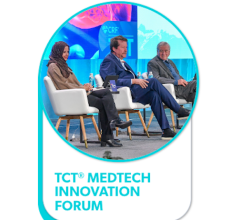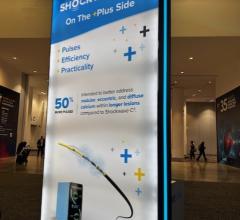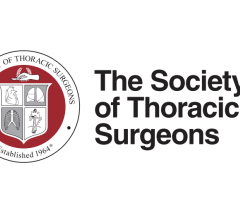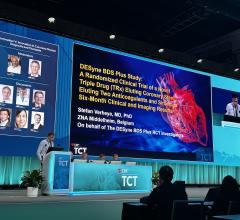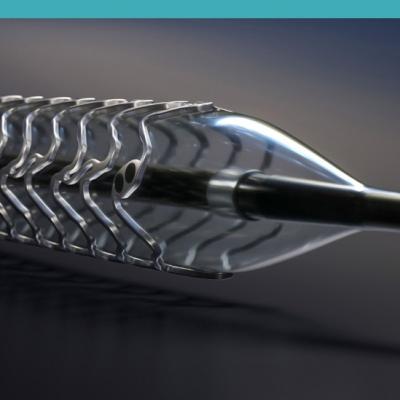
September 27, 2022 — BIOTRONIK announced the presentation of new full-cohort 2-year BIOSOLVE-IV data. In a poster session at the Transcatheter Cardiovascular Therapeutics (TCT) Conference 2022, principal investigator Prof. Dr. Johan Bennett presented the recent findings and highlighted the low TLF rate and the low scaffold thrombosis rate of Magmaris Resorbable Magnesium Scaffold (RMS).1
"Our latest clinical results show a continuation of previous study data2,3 and prove that Magmaris RMS has an excellent safety and efficacy profile up to 24 months1 with TLF rates comparable to contemporary available drug eluting stents4,5,6," said Prof. Bennett, Coronary Interventionalist at University Hospitals Leuven, Leuven, Belgium.
The PMS registry enrolled 2,066 patients worldwide with a large amount of complex patient groups including N-STEMI (18.5%) and diabetic (21.6%) patients as well as cases with B2/C lesions (15.2%) and bifurcation lesions (4.6%).1*
"As the only magnesium based resorbable scaffold technology, the Magmaris scaffold is a unique tool providing a completely different clinical profile to other resorbable technologies. Magmaris has consistently shown excellent outcomes in clinical studies including the latest 24-month data from this large ‘real world’ registry as well as longer term data from previous studies," noted Dr. Jörg Pochert, President Vascular Intervention at BIOTRONIK. "In addition, latest data from our next generation RMS also presented at TCT indicates that resorbable magnesium scaffolds may well be the future of resorbable technology."
The BIOSOLVE-IV study examines the clinical performance and safety of the Magmaris RMS up to a five-year follow-up and is expected to run until 2025.
For more information: https://www.biotronik.com/en-de
References:
1 Bennett, J et al, "Safety and Efficacy of the Resorbable Magnesium Scaffold, Magmaris in a Real-World Setting – 24-month Follow-up of the Full Cohort (2066 subjects) of the BIOSOLVE-IV Registry", presented at TCT 2022, ClinicalTrials.gov: NCT02817802
2 Bennett, J et al «Performance and Safety of the Resorbable Magnesium Scaffold,Magmaris in a Real World Setting Primary and Secondary Endpoint Analysis of the Full Cohort (2066 subjects) of the BIOSOLVE IV Registry, Presented at TCT 2021, ClinicalTrials.gov: NCT02817802
3 Torzewski J. Safety and performance of Magmaris at 24-month follow-up of BIOSOLVE-IV. Presented at: eEuroPCR; 2021; virtual congress. ClinicalTrials.gov: NCT02817802.
4 Kandzari D.E. et al. JACC: Cardiovascular Interventions 2018. doi: 10.1016/j.jacc.2018.09.019.
5 Kok M. et al. Euro Intervention 2018 doi: 10.4244/EIJ-D-18-00336
6 Buiten RA. et al. JACC: Cardiovascular Interventions 2020 doi: 10.1016/j.jcin.2020.01.230
7 Haude M, Ince H, Kische S et al. Sustained safety and performance of the second-generation sirolimus-eluting absorbable metal scaffold: Pooled outcomes of the BIOSOLVE-II and -III trials at 3 years. Cardiovascular Revascularization Medicine. 2020. doi: 10.1016/j.carrev.2020.04.006.
8 Haude M, Toelg R, Lemos P A et al. Sustained safety and performance of a second-generation sirolimus-eluting absorbable metal scaffold: Long-term data of the BIOSOLVE-II first-in-man trial at 5 years. Cardiovascular Revascularization Medicine. 2021. Jul 22; Online ahead of print. S1553-8389(21)00544-3.doi: 10.1016/j.carrev.2021.07.017.
9 Joner M, Ruppelt P, Zumstein P, et al. Preclinical Evaluation of Degradation Kinetics and Elemental Mapping of First and Second Generation Bioresorbable Magnesium Scaffolds. EuroIntervention. 2018. pii: EIJ-D-17-00708. DOI: 10.4244/EIJ-D-17-00708.
10 CE approved. Indication as per IFU.
11Joner M, et al. EuroIntervention. 2018 doi: 10.4244/EIJ-D-17-00708 2. BIOSOLVE-II case, GER443-001.; 2 Courtesy of M. Haude, Lukaskrankenhaus Neuss, Germany 2015.

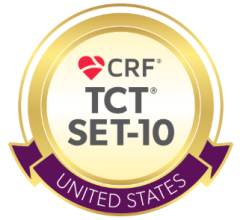
 October 31, 2025
October 31, 2025 



